SIGN (anime): Difference between revisions
MysteryCorgi (talk | contribs) m (→Characters) |
MysteryCorgi (talk | contribs) mNo edit summary |
||
| (10 intermediate revisions by the same user not shown) | |||
| Line 1: | Line 1: | ||
{ | <center> | ||
| | {| class="wikitable" | ||
| | |+ | ||
| | !Previous Title | ||
!Current Title | |||
!Next Title | |||
|- | |||
| <center>[[AI_Buster_(Novels)|.hack//AI Buster]] <br/> [[AI buster 2(Novel)|.hack//AI Buster 2]]</center> | |||
| <center> [[SIGN_(anime)|.hack//SIGN]] <br/> [[Wotan's Spear (story)|AI buster 2 Wotan's Spear (Story #2)]]</center> | |||
| [[ZERO Phantom Pain (Novel)|.hack//ZERO]] | |||
|} | |||
</center> | |||
.hack//SIGN is | {{Video Media Infobox | ||
|Image = [[File:Sign_main_image.jpg|250px|alt="Promotional Image for sign featuring Tsukasa and Aura. The lights of skyscrapers can be seen in the distance. It appears to be nighttime."|.hack//SIGN BeeTrain Promotional Image]] | |||
|Logo = [[File:Logo sign.png|250px|alt="dot hack sign Series Logo"|.hack//SIGN logo]] | |||
=Synopsis | |Title = .hack//SIGN | ||
|Languages = Japanese, English, | |||
|Publications = | |||
|Release Dates = | |||
|Format = DVD, VHS, UMD, Streaming | |||
|Production = BeeTrain | |||
|Published by = Bandai Visual, Funimation | |||
}} | |||
'''''.hack//SIGN''''' (pronounced "dot hack sign") is a Japanese anime television series that aired from April to September 2002.<ref>[https://en.wikipedia.org/wiki/.hack//Sign Wikipedia]</ref> The show was an early entry of the .hack franchise, which tells a cohesive story over the course of various multimedia releases. .hack//SIGN was notable for its unique premise and its exploration of deep themes such as identity, escapism, and interpersonal connections. <br/> | |||
The series was produced by studio Bee Train and Bandai Visual. 26 episodes were aired on TV Tokyo<ref>[https://myanimelist.net/anime/producer/16/tv_tokyo] TV Tokyo on My Anime List</ref>, while additional OVA episodes were made available through home media releases. The events of the series were set in an alternate history and took place in the then-future of 2010. As the first anime title for the series, the release was timed to work in conjunction with the release of the '''[[Games Tetralogy]]''' as an introduction to the setting of ''[[project .hack]]''. <br/> | |||
==Synopsis== | |||
Is it a game? Or is it a world? .hack//SIGN the anime series… | Is it a game? Or is it a world? .hack//SIGN the anime series… | ||
“The World” is immersive virtual gaming environment of the future. Millions of players log on each day to test their skills in virtual adventures and battles. But when reality and virtual reality collide, a whole new adventure unfolds. | “The World” is immersive virtual gaming environment of the future. Millions of players log on each day to test their skills in virtual adventures and battles. But when reality and virtual reality collide, a whole new adventure unfolds. | ||
.hack//SIGN boasts character designs by famed illustrator Yoshiyuki Sadamoto (Neon Genesis Evangelion and Wings of Honneamise), an engaging and immersive storyline scripted by Kazunori Itō (Ghost in the Shell and Patlabor), and directed by Kōichi Mashimo (Noir and Irresponsible Captain Tylor). | .hack//SIGN boasts character designs by famed illustrator Yoshiyuki Sadamoto (Neon Genesis Evangelion and Wings of Honneamise), an engaging and immersive storyline scripted by Kazunori Itō (Ghost in the Shell and Patlabor), and directed by Kōichi Mashimo (Noir and Irresponsible Captain Tylor). | ||
'' | ''.hack//SIGN'' explores the plight of a character who finds himself trapped in an online game called [[The World]] and the players who try to solve the mystery behind his predicament and help him find a way back to reality. It was an early entry of the .hack franchise, which tells a cohesive story over the course of various multimedia releases. ''.hack//SIGN'' was notable for its unique premise and its exploration of deep themes such as identity, reality, and escapism. <br/> | ||
== | ''.hack//SIGN'' is a cerebral exploration of the hazy intersection of offline and online life during the early days of mass communication networks being adopted worldwide and made available to the public. The .hack series poses questions about the risks of opening a network initially limited for use by vital government entities and businesses to the public for entertainment and social interactions, and how damage to a game could impact the rest of the net and the offline world beyond it. <br/> | ||
''Main articles: '''[[:SIGN | ''SIGN'' introduces some of these questions on a smaller, more intimate scale, as ordinary players are forced to reckon with a game that is becoming increasingly intertwined with far-reaching consequences that impact the offline world. The series is unusual when compared to other anime that explore the concept of being trapped in a game, in that it isn't focused on action or game stats, but instead focuses on the relationships of the characters, the motivations of the players, as well as the appeal and drawbacks of escapism. <br/> | ||
===Plot=== | |||
''Main articles: '''[[:SIGN Episodes]]''''' <br/> | |||
The story of ''.hack//SIGN'' follows [[Tsukasa]], a player in an online game called The World who wakes up at the bottom of a dungeon. His memory is hazy and he is disoriented, so he flees after encountering another player. This brings him face to face with members of the [[Crimson Knights]], a guild dedicated to upholding the in-game peace and supporting the system administrators in an unofficial capacity. | |||
Shortly thereafter, he realizes that he cannot log out of the game. When his attempt to log out fails, he realizes that he is not sitting in front of a computer terminal, which begs the question of what the status of his body is, since his mind appears to be trapped in the game. The longer he remains in the game, the more his unusual predicament catches the attention of other players, who each have their own motivations for getting involved with Tsukasa, not all of which are altruistic. <br/> | |||
As time goes on, the rules of the game appear to break in increasingly alarming ways; invincible monsters, illegal characters, inaccessible areas, and players being knocked unconscious while playing the game. All the while, rumors pass from player to player and a hunt for [[The Key of the Twilight|a hidden item that surpasses the system]] begins. As a character with impossible abilities who exists outside of the game's parameters, Tsukasa is swept up in the hunt for answers.<br/> <br/> | |||
==Characters== | ==Characters== | ||
''Main articles: '''[[:SIGN Characters]]''''' | ''Main articles: '''[[:SIGN Characters]]'''''<br/> | ||
<center> | |||
{| class="wikitable" | {| class="wikitable" | ||
|- | |- | ||
! | ! [[Tsukasa]] !! [[Mimiru]] !! [[Bear]] !! [[Subaru]] !! [[Silver Knight]] !! [[Macha]] | ||
! | |||
! | |||
|- | |- | ||
| [[File:Sign tsukasa.png| | | [[File:Sign tsukasa.png|150px |link=Tsukasa|Tsukasa]] || [[File:Sign mimiru.png|150px |link=Mimiru|Mimiru]] || [[File:Sign bear.png|150px |link=Bear|Bear]] || [[File:Sign subaru.png|150px |link=Subaru|Subaru]] || [[File:Sign ginkan.png|150px |link=Silver Knight|Silver Knight]] || [[File:Sign macha.png|150px |link=Macha|Macha]] | ||
|- | |- | ||
|} | |} | ||
| Line 36: | Line 52: | ||
{| class="wikitable" | {| class="wikitable" | ||
|- | |- | ||
! | ! [[Sora]] !! [[BT]] !! [[Crim]] !! [[A-20]] !! [[Helba]] !! [[Balmung]] | ||
! | |||
! | |||
|- | |- | ||
| [[File:Sign | | [[File:Sign sora.png|150px |link=Sora|Sora]] || [[File:Sign bt.png|150px |link=BT|BT]] || [[File:Sign crim.png|150px |link=Crim|Crim]] || [[File:Sign a20.png|150px |link=A-20|A-20]] || [[File:Sign helba.png|150px |link=Helba|Helba]] || [[File:Sign balmung.png|150px |link=Balmung|Balmung]] | ||
|- | |- | ||
|} | |} | ||
</center> | |||
==Setting== | |||
''Main articles: '''[[:SIGN Setting]]''''' <br/> | |||
=Production= | ==Production== | ||
==Staff== | ===Staff=== | ||
''Main articles: '''[[:SIGN Credits]]''''' | ''Main articles: '''[[:SIGN Credits]]'''''<br/> | ||
.hack//SIGN was directed by Koichi Mashimo, the founder and CEO of Bee Train, the studio which produced the anime.<ref>[http://www.beetrain.co.jp/contents/works/sign/ BeeTrain Website]</ref> He also did Editing (off-line), screenplay, script, story board, and sound director work for .hack//SIGN. | .hack//SIGN was directed by Koichi Mashimo, the founder and CEO of Bee Train, the studio which produced the anime.<ref>[http://www.beetrain.co.jp/contents/works/sign/ BeeTrain Website]</ref> He also did Editing (off-line), screenplay, script, story board, and sound director work for .hack//SIGN. | ||
| Line 75: | Line 73: | ||
The score was composed by Yuki Kajiura. This was the second time she worked with Mashimo, after doing the score for Noir. She went on to do music for other Bee Train titles, including other .hack titles (Liminality OST, Opening theme for Roots and Ending theme for DUSK) as well as the "Girls with Guns" trilogy, made up of Noir, Madlax and El Cazador de la Bruja. | The score was composed by Yuki Kajiura. This was the second time she worked with Mashimo, after doing the score for Noir. She went on to do music for other Bee Train titles, including other .hack titles (Liminality OST, Opening theme for Roots and Ending theme for DUSK) as well as the "Girls with Guns" trilogy, made up of Noir, Madlax and El Cazador de la Bruja. | ||
=Media= | ==Media== | ||
''Main articles: '''[[:SIGN Music]]''''' | ''Main articles: '''[[:SIGN Music]]''''' | ||
Latest revision as of 22:22, 16 October 2023
| Previous Title | Current Title | Next Title |
|---|---|---|
.hack//AI Buster 2 |
AI buster 2 Wotan's Spear (Story #2) |
.hack//ZERO |
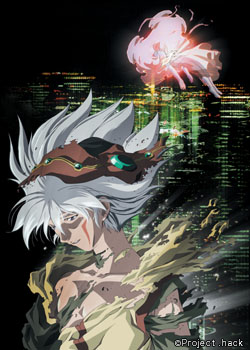
| |
.hack//SIGN
| |
Japanese, English,
| |
Publications
|
|
Release Dates
|
|
Format
|
DVD, VHS, UMD, Streaming
|
Production
|
BeeTrain
|
Published by
|
Bandai Visual, Funimation
|
.hack//SIGN (pronounced "dot hack sign") is a Japanese anime television series that aired from April to September 2002.[1] The show was an early entry of the .hack franchise, which tells a cohesive story over the course of various multimedia releases. .hack//SIGN was notable for its unique premise and its exploration of deep themes such as identity, escapism, and interpersonal connections.
The series was produced by studio Bee Train and Bandai Visual. 26 episodes were aired on TV Tokyo[2], while additional OVA episodes were made available through home media releases. The events of the series were set in an alternate history and took place in the then-future of 2010. As the first anime title for the series, the release was timed to work in conjunction with the release of the Games Tetralogy as an introduction to the setting of project .hack.
Synopsis
Is it a game? Or is it a world? .hack//SIGN the anime series… “The World” is immersive virtual gaming environment of the future. Millions of players log on each day to test their skills in virtual adventures and battles. But when reality and virtual reality collide, a whole new adventure unfolds. .hack//SIGN boasts character designs by famed illustrator Yoshiyuki Sadamoto (Neon Genesis Evangelion and Wings of Honneamise), an engaging and immersive storyline scripted by Kazunori Itō (Ghost in the Shell and Patlabor), and directed by Kōichi Mashimo (Noir and Irresponsible Captain Tylor).
.hack//SIGN explores the plight of a character who finds himself trapped in an online game called The World and the players who try to solve the mystery behind his predicament and help him find a way back to reality. It was an early entry of the .hack franchise, which tells a cohesive story over the course of various multimedia releases. .hack//SIGN was notable for its unique premise and its exploration of deep themes such as identity, reality, and escapism.
.hack//SIGN is a cerebral exploration of the hazy intersection of offline and online life during the early days of mass communication networks being adopted worldwide and made available to the public. The .hack series poses questions about the risks of opening a network initially limited for use by vital government entities and businesses to the public for entertainment and social interactions, and how damage to a game could impact the rest of the net and the offline world beyond it.
SIGN introduces some of these questions on a smaller, more intimate scale, as ordinary players are forced to reckon with a game that is becoming increasingly intertwined with far-reaching consequences that impact the offline world. The series is unusual when compared to other anime that explore the concept of being trapped in a game, in that it isn't focused on action or game stats, but instead focuses on the relationships of the characters, the motivations of the players, as well as the appeal and drawbacks of escapism.
Plot
Main articles: SIGN Episodes
The story of .hack//SIGN follows Tsukasa, a player in an online game called The World who wakes up at the bottom of a dungeon. His memory is hazy and he is disoriented, so he flees after encountering another player. This brings him face to face with members of the Crimson Knights, a guild dedicated to upholding the in-game peace and supporting the system administrators in an unofficial capacity.
Shortly thereafter, he realizes that he cannot log out of the game. When his attempt to log out fails, he realizes that he is not sitting in front of a computer terminal, which begs the question of what the status of his body is, since his mind appears to be trapped in the game. The longer he remains in the game, the more his unusual predicament catches the attention of other players, who each have their own motivations for getting involved with Tsukasa, not all of which are altruistic.
As time goes on, the rules of the game appear to break in increasingly alarming ways; invincible monsters, illegal characters, inaccessible areas, and players being knocked unconscious while playing the game. All the while, rumors pass from player to player and a hunt for a hidden item that surpasses the system begins. As a character with impossible abilities who exists outside of the game's parameters, Tsukasa is swept up in the hunt for answers.
Characters
Main articles: SIGN Characters
| Tsukasa | Mimiru | Bear | Subaru | Silver Knight | Macha |
|---|---|---|---|---|---|
 |
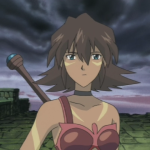 |
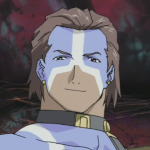 |
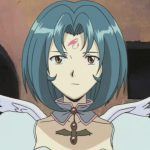 |
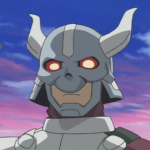 |
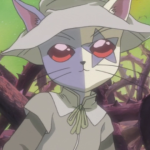
|
| Sora | BT | Crim | A-20 | Helba | Balmung |
|---|---|---|---|---|---|
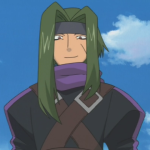 |
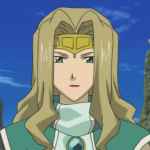 |
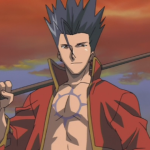 |
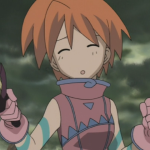 |
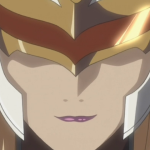 |
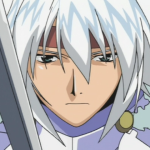
|
Setting
Main articles: SIGN Setting
Production
Staff
Main articles: SIGN Credits
.hack//SIGN was directed by Koichi Mashimo, the founder and CEO of Bee Train, the studio which produced the anime.[3] He also did Editing (off-line), screenplay, script, story board, and sound director work for .hack//SIGN. Bee Train also produced the Liminality, Gift, Dusk, and Roots anime. The score was composed by Yuki Kajiura. This was the second time she worked with Mashimo, after doing the score for Noir. She went on to do music for other Bee Train titles, including other .hack titles (Liminality OST, Opening theme for Roots and Ending theme for DUSK) as well as the "Girls with Guns" trilogy, made up of Noir, Madlax and El Cazador de la Bruja.
Media
Main articles: SIGN Music
References
| |||||||||||||||||||||||||||
